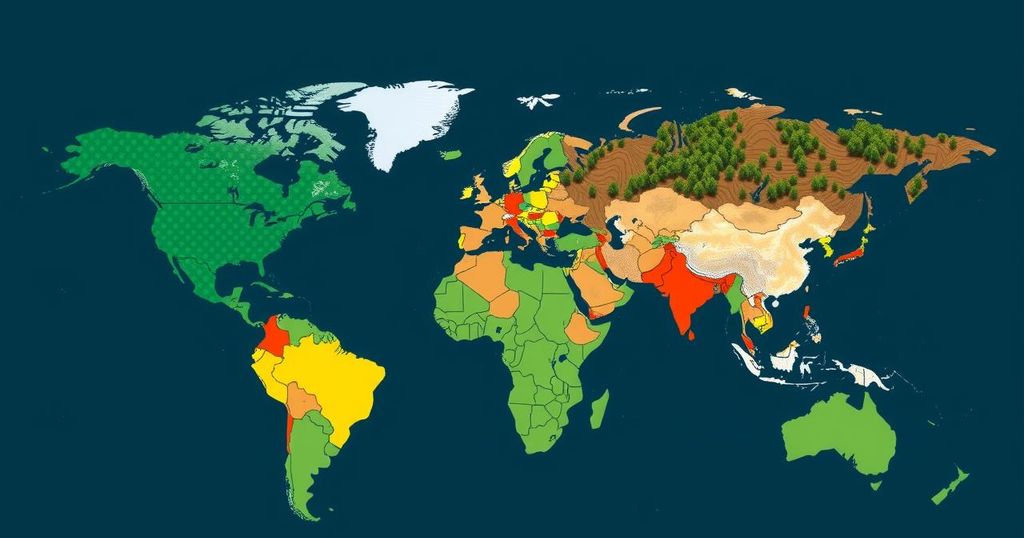Wealthy Nations Begin Compensating Poorer Countries for Climate Damage

Cyclone Freddy devastated Malawi, with victims like Christopher Bingala receiving vital financial aid for recovery. This aid exemplifies a new ‘loss and damage’ funding initiative aimed at supporting poorer nations impacted by climate change. Approximately $720 million has been pledged, though experts warn it is insufficient as disasters worsen. The COP29 summit discussions focus on the financial responsibilities of wealthier nations toward developing countries.
In the early hours, Cyclone Freddy inundated southern Malawi, displacing many, including Christopher Bingala, who lost his home and livestock. A crucial payment of approximately $750 enabled him to rebuild his family’s home. This payment exemplifies the emerging “loss and damage” compensation scheme initiated by wealthier nations to support poorer ones facing the brunt of climate catastrophes. Despite the roughly $720 million pledged by various countries, experts caution that this amount is insufficient given the escalating severity of climate-related disasters. During the COP29 climate summit, discussions are underway to determine the financial responsibilities owed to developing nations.
The devastation caused by Cyclone Freddy resulted in the displacement of 650,000 individuals in Malawi alone. Following the disaster, Bingala and his family took refuge but quickly faced food shortages. The financial aid he received proved pivotal, allowing his family to relocate and construct a new home in a safer area. Although challenges remain, Bingala expresses relief that his children are now out of danger and lead a happier life away from water threats.
Funding for these efforts originated from the Scottish government, marking a significant step in recognizing the importance of compensating those affected by climate emergencies. Programs like this aim to offer cash support without conditions, enabling families to prioritize their most pressing needs, from home reconstruction to education for their children.
As climate-related catastrophes intensify, the demand for loss and damage funding is expected to surge, with one study estimating a need of $250 billion annually by 2030. The financial burdens on countries like the Bahamas are evident, where Prime Minister Philip Davis indicated that much of the national debt is tied directly to climate disasters. Richer nations are urged to fulfill their commitments to climate finance, recognizing not only their historical role in emissions but also the wider humanitarian implications of inaction. As climate refugees may emerge from vulnerable regions, the interconnected nature of global crises necessitates a comprehensive response to mitigate these impending challenges.
The article discusses the emerging concept of “loss and damage” compensation as a means for wealthier nations to support poorer countries adversely affected by climate change. It highlights the specific case of Cyclone Freddy in Malawi, which exemplifies the heightened vulnerabilities of low-income nations to extreme weather events. The backdrop involves a global commitment by richer countries to allocate funds for climate-related damages, amidst growing calls for accountability and financial support to avoid escalating humanitarian crises.
The article emphasizes the urgent need for a structured financial mechanism to aid low-income nations facing climate-induced disasters. It underscores the reality that while some financial aid has been pledged by developed nations, the amounts are inadequate in light of rising climate-related challenges. The implications for global stability are significant, as inaction may result in widespread humanitarian repercussions. There is a pressing call for richer countries to undertake responsibility for their contributions to climate change and to provide meaningful assistance to those struggling to recover.
Original Source: www.kanw.com






